Chapter 10
Sirone returned with a history book in his hand and said, “Get up and grab a book. Let’s study.”
Lian groaned, “You know how intense my training has been lately, don’t you?”
Ignoring the protest, Sirone pushed his friend out of the study, took a seat, and unfurled the history book. Fieldwork had been wrapping up much faster than paperwork recently, leaving Sirone with some spare time. As he delved into the book, the pages seemed to fly by in an instant. With his familiarity with most of the content, Sirone could predict what would come next. This indicated that the scope of knowledge in his mind exceeded that of books. Having mastered a six-hundred-volume history tome, digesting the remaining two hundred seemed like a walk in the park.
“Look, Sirone. This book looks interesting,” Lian said, waving the book he had chosen.
As he glanced over, he saw Sirone flipping through the pages at an astonishing speed. He couldn’t help but be impressed, especially considering there were times when it took him hours to turn a single page. This was because, after opening the first page of a book, he’d often find himself waking up to the morning light.
Lian quietly took a seat beside Sirone to avoid disturbing him and opened a book titled The Duel Between a Swordsman and a Mage.
“Have you ever found yourself wondering who would emerge victorious in a duel between a swordsman and a mage?”
As Lian read the preface of his book aloud, Sirone’s hand paused. It was an intriguing topic for even an aspiring mage.
“I roamed all over the world in search of that answer, and even now, I can vividly recall it— the Artusna Mountains, towering at 6,000 meters above sea level, where carnivorous trees prey on mountain birds—” Lian closed the book abruptly, complaining. “This is awfully boring.”
“What? I find it interesting!” Sirone exclaimed.
Lian shrugged his shoulders. Even though he seemed uninterested, Sirone had been listening. “What’s interesting about it? There are no illustrations, and it doesn’t even mention swordsmanship.”
“You’re complaining without even reading a single page!”
“Writers should be considerate of their readers by starting a book with excitement and ending it with emotion.”
“But that’s not a novel. Give it here. So, who emerges victorious?” Sirone asked, snatching away the book from Lian’s hands.
“Does it matter who wins? Would a mage and a swordsman actually be crazy enough to duel in the first place? If the odds are in their favor, they fight. If not, they flee.”
Ignoring Lian’s remarks, Sirone spread open the middle section of The Duel Between a Swordsman and a Mage and began scanning the pages. “There may be situations where a fight is inevitable. Who do you think would win in those cases?”
“I don’t know,” the Ojent boy replied as he shrugged again. “If I had to make a guess...”
At that moment, a sharp voice emanated from beyond the bookshelf. “Obviously, the swordsman would prevail.”
With that declaration, a stern-looking man made his entrance. He was not as heavy as Lian, but he was considerably taller, with long and lean arms and legs. The man was Lye Ojent, the second son of the house.
Despite being brothers, he and Lian were quite different, beginning with his jet-black hair. In the House of Ojent, two distinct features were inherited. The master of the house, Bishop, and his two sons—the eldest and the second—were blessed with black hair, while the diluted blue hues were passed down to the eldest daughter and the youngest son, Lian.
In addition, Lian’s grandfather, a certified level-three swordsman, was also blue-haired. While the family members shared a strong bond, they sometimes divided themselves by their inherited features, adding an interesting dynamic. The prominence of a lineage could vary from generation to generation, and this time, the black-haired lineage connected to Bishop and Lye prevailed.
Startled by Lye’s sudden entrance, Sirone quickly greeted him. “Hello, Master Lye.”
The boys’ friendship was clandestine, which meant it could pose a problem if Lye were to overhear their conversation.
“You think the swordsman would win? How can you be so sure? Just because you’re a swordsman yourself?”
Lian, also aware of the potential problem, sought to provoke Lye with a mocking tone. “Do I need to make grandiose claims of certainty? Just knowing the standing of mages and swordsmen on each continent already makes the outcome clear,” Lye replied, seemingly indifferent to the relationship between Sirone and his younger brother. However, Sirone couldn’t help but feel uneasy. Every time Lye had come to the library, he felt as if he was hard to read.
“Titles aside, it’s a duel. You wouldn’t make such proclamations on an actual battlefield. Would you tell your opponent to step down just because you outrank them?” Lian guffawed heartily as if he had just delivered a solid blow.
But Lye remained unresponsive, turned to Sirone with an uninterested look in his eyes, and asked, “What about you, kid? Who do you think would win?”
“Well... If both the swordsman and mage are at the highest level, a mage could potentially land a fatal blow with their magic. Magic holds significant power, after all. However, swordsmen have exceptional physical abilities, so if they charge before the mage can use magic...”
“No, you’re wrong. A mage cannot defeat a swordsman.”
Sirone, still just an aspiring mage, felt a lump in his throat.
Seeing his friend being disregarded, Lian also bristled with anger and shouted, “What gives you the right to tell him he’s wrong? Do you think you’re the king of all swordsmen or something?”
The corner of Lye’s mouth curved, a mocking smile that Lian despised the most. “The pride of a swordsman can’t be gained by just anybody. However, a mage’s knowledge can be bought with money.”
Lye’s words carried weight. In reality, swordsmen had a method to defend against magic, known as the artifact called “anti-magic.” The unique mental waves contained within the anti-magic artifact disrupted the mage’s spirit zone, essentially diminishing their concentration.
These artifacts were typically crafted in the form of crystals and could serve as armor, shields, and, in some cases, be attached to swords. Due to their construction with materials like a dragon’s heart emitting magical waves, these artifacts came with a hefty price. Yet, even if one were to equip ten artifacts with an efficiency of ten percent, it wouldn’t result in a 100 percent defense.
This was due to the resonating nature of the waves. No matter how many new waves were added to the anti-magic wave, there would inevitably be overlapping areas. In leading cases where more artifacts were equipped, they became less effective.
The most renowned artifact in existence was the “Armor of Sin,” created by the archmage Yakra. Each piece—helmet, armor, gauntlets, boots, and shield—contained an artifact with a maximum efficiency of twenty percent. When all pieces of the Armor of Sin were worn, the magical suppression it provided amounted to a staggering 65 percent. This result was achieved by minimizing wave overlap, and a 65 percent reduction in concentration proved lethal for a mage.
Another challenging item for mages was the “Essence of Elementals.” These essences, found in minuscule amounts in the natural world, came in four types: fire, water, wind, and earth. When equipped, they not only prevented the activation of magic but also offered complete resistance to their respective elements. Thus far, only seventeen essences had been discovered worldwide—two fire, three water, five wind, and seven earth—each one valued higher than the budget of a small kingdom.
Sirone began to wonder if a mage would stand a chance against a swordsman donning the Armor of Sin with four elemental essences affixed to his sword. Of course, this was purely theoretical. The Armor of Sin set was scattered across the world with an unknown origin, and obtaining the essences of elementals was nearly impossible without the resources of an entire nation.
Equipping multiple anti-magic artifacts also posed a problem. Even Yakra, the leading expert in wave equations, dedicated ten years to fine-tuning the Armor of Sin. In short, haphazardly overlapping the waves of anti-magic would only drain one’s money.
Without the synthesis of wave formulas, resonant frequencies, and magic interactions, the efficiency would not increase. Stories about noblemen losing half their fortune trying to raise anti-magic by a single percent were no mere joke. This was where the dilemma for swordsmen began. It was far more economical to travel with a mage trained in anti-magic than to invest a considerable sum in enhancing anti-magic.
Embedded within this statement from Lye was the implication that a mage was merely subservient to a swordsman and that a mage’s knowledge could be bought with money. In fact, those who first developed anti-magic into an artifact were mages, not swordsmen.
Numerous mages continued to study the impact of dragon magic on the spirit zone. This was because achieving success in this research could lead to immense wealth and fame.
It was quite ironic that a mage, who used magic, would be researching ways to weaken it. This contradiction was precisely what Lye wanted to point out. He implied that a mage blinded by things like money would never be able to win against the pride of a swordsman.
“You seem to enjoy history books. I suppose you probably know where mages stand in the world, right? Magic can be sealed with money, but a mage can never replicate the training of a swordsman.”
While this perspective heavily favored the swordsman, Sirone understood the message Lye was trying to convey. “That’s what a mage is.”
Surprised by Sirone’s response, one of Lye’s eyebrows raised. Instead of getting defensive, as a boy who loved magic should, he was actually acknowledging it.
“A mage is someone who persistently delves into the harmony of all things. So, it’s not strange for them to research ways to suppress magic. What they value isn’t whether they win or lose in a fight but whether they understand it or not. Ultimately, artifacts are also products of that boundless intellect. I believe that claiming the superiority of a swordsman based on that alone is a flawed premise from the start.”
Unlike Lian, Lye had a disposition to dominate with whatever logic he could muster if he believed he could win against his opponent. However, he kept his mouth shut at Sirone’s remarks, unable to find a counterargument.
Lian struggled to contain his laughter. Serves you right! My friend has a clever tongue, doesn’t he? If his tongue were a sword, he’d be the world’s greatest swordsman.
Lye had been continuously searching for a counterargument, but his expression gradually began to distort. He couldn’t think of anything to say. “Ideals may differ from reality. Regardless of a mage’s intentions, the fact remains that they could never win against a swordsman.”
As Lye coldly turned away and exited the library, Lian’s laughter bubbled up. Ideals differ from reality? That’s all you have to say? What a fool! Hurry up and leave already. Then, as the door finally closed, he pulled Sirone close and burst into laughter. “Sirone, you’re the best! I’ve never seen him make a face like that before!”
Being pushed and pulled by Lian, Sirone continued to stare at the door Lye had left through. The Duel Between a Swordsman and a Mage... While reality might truly be different, as Lye had said, Sirone held onto his belief. It was the boundless spirit of inquiry in a mage, one who dared to subject even their vulnerabilities to scrutiny, that stood as the bedrock for intellect’s existence in this world.
***
The grand library exuded an air of solemnity, its atmosphere cool and still. The shelves, once brimming with knowledge, now stood empty, and the fluorescent lights that used to bathe the space in a daylight-like glow were switched off. Only a single beam of sunlight streamed in from the fourth-floor window, casting a glow upon Sirone.
Bathed in the sunlight, he turned the pages of the book. One page, then another, until finally... the last page came to an end, and the cover closed gently in his hand. Sirone tenderly caressed the book. Flipping a book was an easy task, but not just anyone could navigate the valleys of hundreds of pages and finally reach the end.
Sirone had read all eight hundred fifty volumes of history books in the grand library. Finally, I’ve completed developing the backbone of my knowledge, he thought, a warm feeling welling up inside him. Though the child of a hunter, he could now converse about the world as a whole with anyone.
It took me a year and six months. What had initially felt painfully slow in progress had accelerated exponentially, ultimately shortening the time by six months. Now, he could return home at any time, and there was no longer any danger to his family’s lives. It feels unreal. Countless events flashed through his mind like a dream.


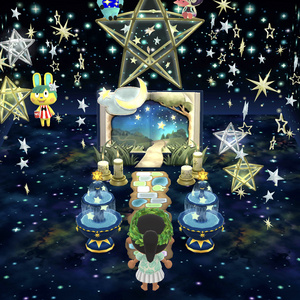
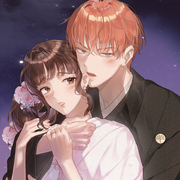
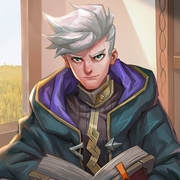



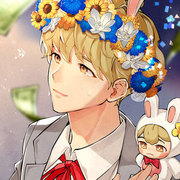

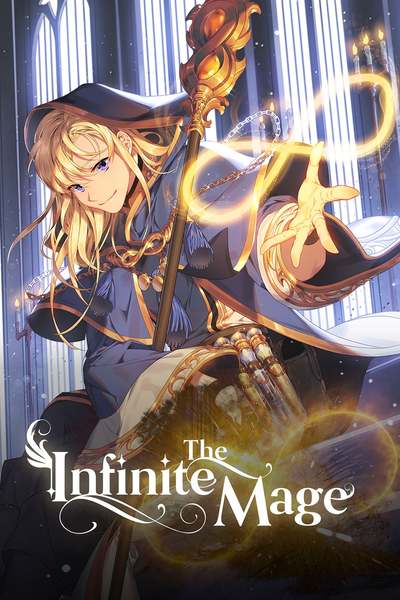
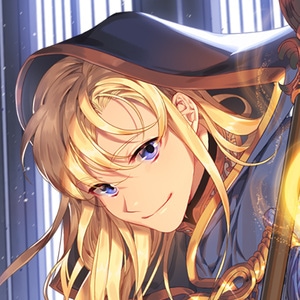
Comments (4)
See all